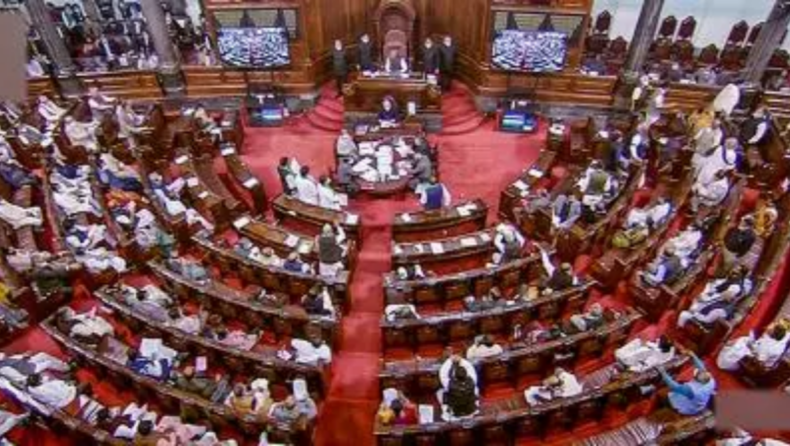A look at the grounds for suspending an MP as 19 opposition MPs are expelled from the Rajya Sabha for one week, and the rules for suspension of MPs from Parliament.
On Tuesday, 19 opposition lawmakers were expelled from the Rajya Sabha for a week, provoking Derek O’Brien, the leader of the Trinamool Congress, to remark that the government had transformed parliament into a “deep, dark chamber.”
Along with six MPs from the DMK, three from the TRS, two from the CPM, and one from the CPI, seven of O’Brien’s Rajya Sabha colleagues were suspended. The MPs’ suspension was due to “unruly behavior.”.
Twelve opposition members were expelled from the Rajya Sabha on November 29 of last year, the first day of the winter session, for “their unprecedented acts of misconduct, contemptuous, unruly and violent behavior and intentional attacks on security personnel” on August 11, the final day of the previous monsoon session.
What are the causes for their suspension?
The basic rule is that the Speaker of the Lok Sabha and the Chairman of the Rajya Sabha have the responsibility and role of upholding order so that the House can conduct business as usual. The speaker or chairperson has the authority to compel a member to leave the House in order to ensure that business is handled properly.
On Tuesday, opposition members who had been disrupting the meeting since it began on July 18 entered the well despite repeated calls from Deputy Chairman Harivansh for them to take their seats. Harivansh requested that the Treasury introduce a motion to suspend them, and V Muraleedharan, Minister of State for Parliamentary Affairs, did so. The motion called for the suspension of 10 MPs for the balance of the week due to “misconduct.” The motion was put to a vote by Harivansh, who also announced the names of the 19 opponents.
What are the rules under which the presiding officer acts?
Rule 373 of the Rules of Procedure and Conduct of Business states that if the speaker believes that a member’s behavior is “grossly disorderly,” he or she “may direct such Member to withdraw from the House immediately, and such Member shall do so forthwith and shall remain absent during the remainder of the day’s sitting.””
Rule 374 says:
(1) The speaker has the ability to designate a member who consistently and purposefully obstructs the house’s business, disobeys the chair’s authority, or violates house rules.
(2) On a motion being made, the House may decide to lift this suspension at any moment. If the Speaker so designates a member, the Speaker shall, upon a motion being made immediately, ask the question whether the Member (identifying such Member) be suspended from the service of the House for a period of time not to exceed the duration of the session.
(3) A member who has been suspended in accordance with this regulation must leave the House’s grounds right away.
Rule 374A:
- Notwithstanding anything contained in rules 373 and 374, in the event of grave disorder occasioned by a Member coming into the well of the house or abusing the Rules of the House persistently and willfully obstructing its business by shouting slogans or otherwise, such Member shall, on being named by the Speaker, stand automatically suspended from the service of the House for five consecutive sittings or the remainder of the session, whichever is less: Provided that the House may, at any time, on a motion being made, resolve that such suspension be terminated.
- The member must immediately leave the House’s precincts after the speaker declares their suspension in accordance with this rule.
What happens in Rajya Sabha?
According to Rule 255 of the Rajya Sabha’s Rules of Procedure, the Chairman has the same authority as the speaker of the Lok Sabha to “command any member whose conduct is in his judgement highly disorderly to remove immediately” from the House.
The Chairman may “identify a member who disregards the authority of the chair or abuses the rules of the Council by persistent and deliberate impeding” business, as provided in Rule 256. In this case, the House has the authority to pass a motion suspending the member from House duty for a time period not to exceed the remainder of the current session.
The suspension could be ended by another motion made by the house.












